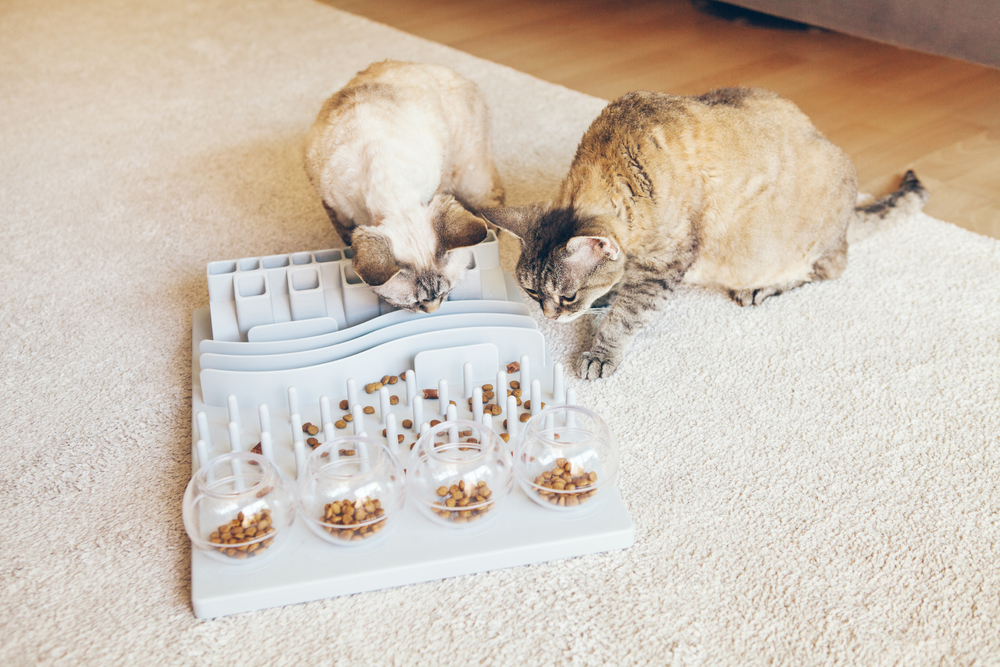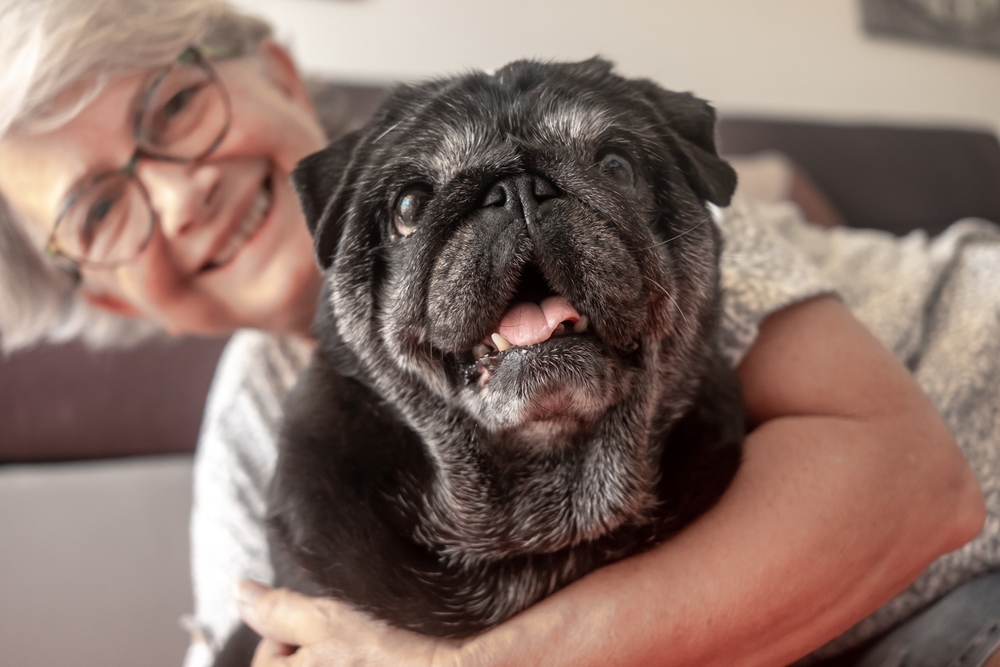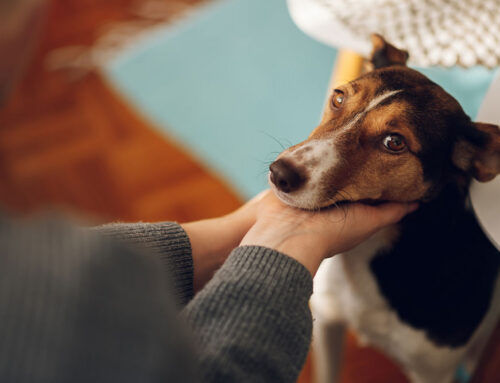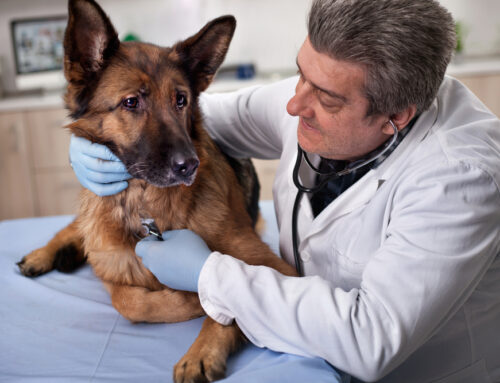Old friends are the best, especially when it comes to pets. Through the years, you and your pet have learned each other’s routines and rhythms, likes and dislikes, and endearing—and irritating—traits. And, through the ups and downs, you’ve formed a bond that is as close as your shadow and as automatic as your heartbeat.
But, as pets age, their health needs change, and we must change the way we care for them. Here are five ways to support your senior pet and continue to show them the love and appreciation they deserve.
#1: Increase your senior pet’s veterinary visits to twice per year
On the surface, older dogs and cats seem to have few needs because, unlike their younger days, they sleep most of the time, exercise less, and generally don’t get into mischief. However, older pets may seem more sedentary, but their bodies are in an age-related decline that can lead to hidden health changes that may not be visible until the pet is in significant pain or suffering from late-stage illness.
Twice-yearly veterinary exams at Guam Pet Hospital are the best way to ensure early diagnosis and treatment for age-related conditions such as:
- Arthritis
- Dental disease
- Kidney failure
- Cancer
By identifying these and other health issues earlier, the veterinary team can help extend and improve your pet’s quality of life.
#2: Observe your senior pet for common pain and illness signs
While you can easily recognize illness when your pet is vomiting or suffering from diarrhea, other signs may be more subtle. In addition, most dogs and cats try to hide their pain and sickness to avoid appearing weak or vulnerable. Sadly, this can make determining that your loyal companion is suffering difficult.
Senior pet owners must learn to recognize their pet’s small behavior and routine changes that suggest possible illness or physical discomfort. These may include:
- Slow or stiff movements
- Avoiding slick surfaces
- Hiding or avoiding physical contact (e.g., petting, being picked up)
- Decreased or increased appetite
- House soiling or changes in litter box habits
- Disorientation
- Personality changes (e.g., irritability, fearfulness, clingy behavior)
No one knows your senior pet as well as you. Mention any unusual changes to your Guam Pet Hospital veterinarian.
#3: Make your home senior pet-friendly
Arthritis is a painful inflammatory joint disease that makes normal activity difficult for dogs and cats. Fortunately, you can make your arthritic pet more comfortable and protect their confidence. We recommend simple home modifications, such as:
- Supportive bedding — Thick, padded pet beds evenly support your pet’s painful joints and promote healthy sleep.
- Pet ramps — Permanent or portable pet ramps help your pet reach their favorite places and protect them from painful slips and falls. Ramps are most commonly used for pets to access furniture, cars, and stairs.
- Non slip rugs or mats — Navigating slick floors can be difficult for senior pets. Place rugs or non-slip mats along your pet’s normal path to ensure they can comfortably move from room to room.
- Low-sided litter box — Arthritic cats may avoid traditional litter boxes with high sides that are difficult or painful to climb. Give your cat easy access by cutting a lower entryway and covering the trimmed edges with duct tape to prevent scratches.
- Mobility harness — Large dogs may need a lift when getting up from the floor or navigating stairs or ramps. A padded body harness with a handle on top can help you safely assist your dog.
If you’re concerned about your pet’s mobility, check out our arthritis warning signs blog post.
#4: Keep your senior pet lean and fit
Extra weight can increase the demand on your senior pet’s arthritic joints and may increase their risk for inflammatory diseases, such as cancer, respiratory disease, and kidney failure. If your pet is overweight, they may need specific diet or exercise changes to help them slim down and avoid harmful weight-related complications—which include a shortened lifespan.
Because other health conditions can cause weight gain, talk to your Guam Pet Hospital veterinarian before pursuing an at-home weight loss plan.
#5: Give your senior pet a mental workout

Like the human brain, the pet brain deteriorates with age. In some pets, a more severe dementia-like condition known as cognitive dysfunction syndrome (CDS) may be the cause. Mentally stimulating activities, such as puzzles, fun games, and long leisurely walks for your dog, may lower your pet’s CDS risk and ward off other age-related mental health problems, such as boredom and depression. Also, regular positive interactions can help your aging pet feel loved and valued.
By the time your pet is a senior, you’ve made many wonderful memories together, and adapting your care routine to their changing needs is the best way to ensure those memories continue for as long as possible. Your gold standard care for your golden oldie pet begins with a visit to Guam Pet Hospital, so contact our knowledgeable team to schedule your senior pet’s wellness exam.








Leave A Comment